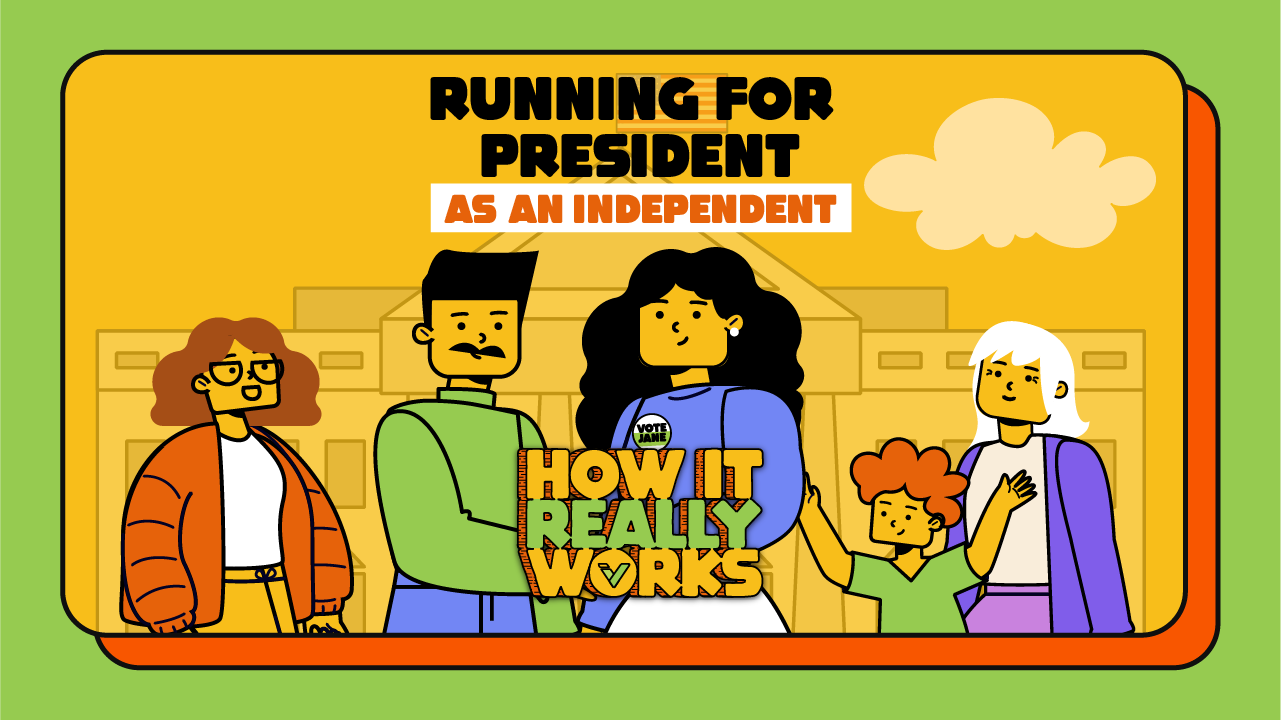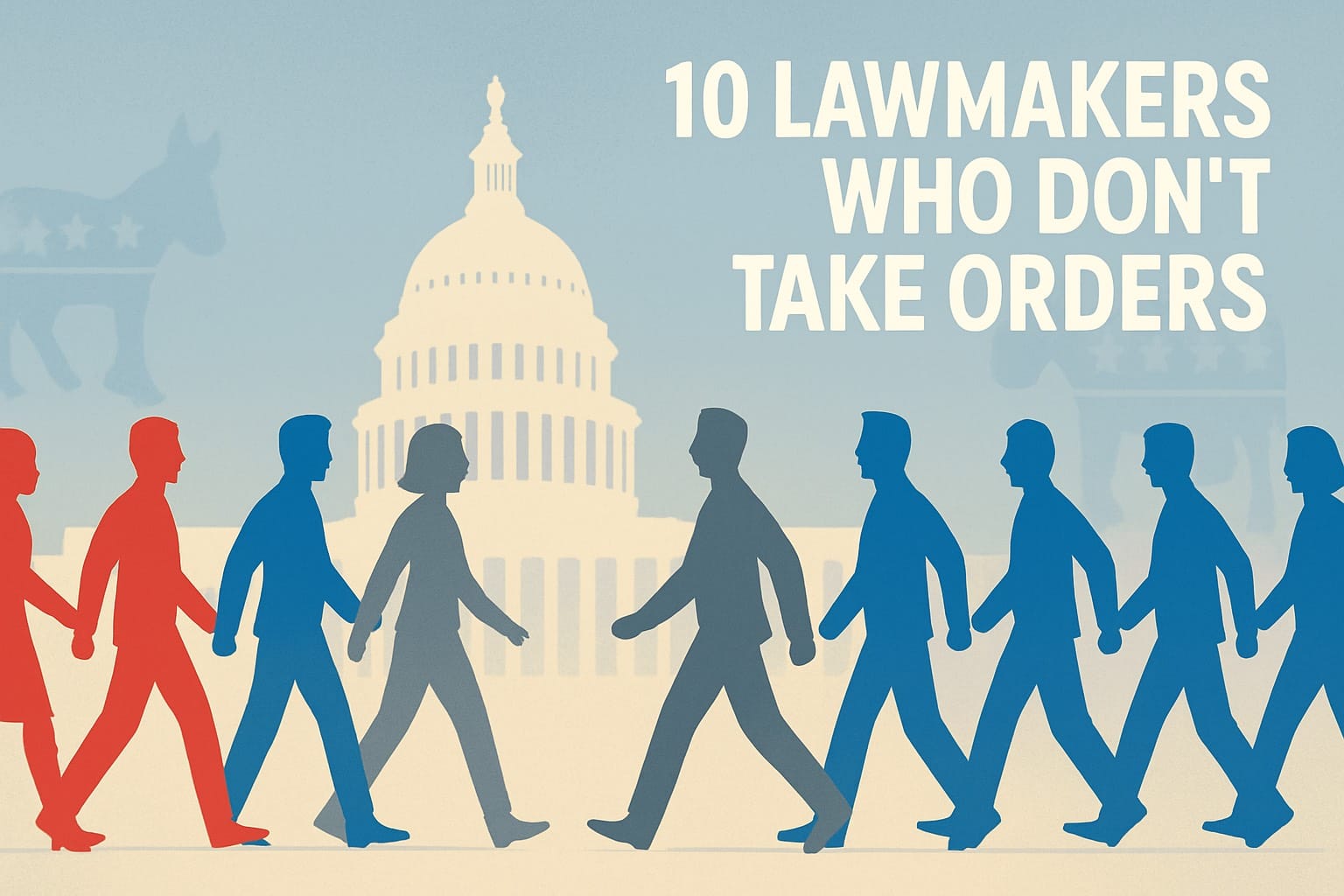Senator Jacky Rosen Bucks Party Politics to Champion No Tax on Tips

WASHINGTON, DC - Americans woke up to the news Wednesday that the US Senate did the seemingly impossible in today’s hyper-polarized political environment: Its members unanimously approved a stand-alone bill that eliminates taxes on tips, which was one of President Donald Trump’s signature promises on the 2024 campaign trail.

And while it is considered a political win for Trump, the bill’s passage was instigated by Democratic US Sen. Jacky Rosen of Nevada. She advanced it through a unanimous consent agreement – which means it was offered up for immediate passage without a roll call vote and there were no objections.
“No taxes on tips’ was one of President Trump’s key promises to the American people,” she said on the Senate floor. “And I am not afraid to embrace a good idea wherever it comes from."
This position falls in line with one of IVN’s key principles to being independent: When a lawmaker is willing to hold themselves accountable to their constituency. An independent-minded lawmaker puts the needs of their voters before partisan politics, and for Rosen as much as 17% of her state’s workforce earns their income primarily through tips.
“Nevadans sent me here to fight for them – and I’m going to keep working to lower costs, raise wages, and make sure the people who power our economy, our working families, can keep more of what they earn,” she added in her remarks.
This is why the IVN staff believes Rosen deserves the title of “independent of the week” on the national stage – a new series we’ve launched to recognize public officials who embody the independent spirit at a time of extreme partisan division and a general feeling among voters that representation is lacking.

The No Tax on Tips Act was introduced in January by Republican US Sen. Ted Cruz (Texas). The bill creates a deduction up to $25,000 on cash tips that workers report to employers for withholding purposes on payroll taxes. While the bill explicitly says “cash tips,” this also includes tips from debit and credit card payments.
The bill applies to workers who make less than $160,000 a year and earn enough that they pay federal taxes in the first place.
“This legislation will have a lasting impact on millions of Americans by protecting the hard-earned dollars of blue-collar workers, the very people who are living paycheck-to-paycheck. I urge my colleagues in the House to pass this important bill and send it to the President’s desk to be signed into law,” Cruz said.
Rosen was one of only 2 Democratic co-sponsors. She acknowledged that the no tax on tips policy is also in the One Big Beautiful Bill Act that is being considered in the House. However, she is concerned that the benefits for workers in her state will be offset by potential cuts to Medicaid, SNAP, and other programs low-income Americans depend on.
“We shouldn’t be forcing working families to choose between keeping their health care or keeping their tips, which is why we want this bipartisan bill on its own,” she said during her speech on the Senate floor. She called on the House “to pass the bill without playing politics” and “pass it by itself.”
Rosen Is Known for Working Across the Aisle
Senator Rosen has been recognized for her bipartisan approach in the Senate. According to a 2024 bipartisan voting index by the Lugar Center and Georgetown University’s McCourt School of Public Policy, she was ranked as the fourth most bipartisan Democratic senator and sixth overall in the Senate for the 118th Congress (2023-2025 term).
“Nevadans sent me to the U.S. Senate to stand up to the business-as-usual politics of Washington and work across the aisle on common-sense legislation that delivers for hardworking families in our state,” she said at the time. Notably, in 2023, 97% of the legislation she introduced was bipartisan.
Some notable examples:
- Rosen co-introduced the Maximizing Outcomes through Better Investments in Lifesaving Equipment (MOBILE) Health Care Act with Republican US Sen. Susan Collins (Maine). The bill enables community health centers to use federal funds for mobile health units, enhancing access to health care in rural and underserved areas. It became law in 2022.
- On the topic of government reform, Rosen partnered with Republican US Sen. Rick Scott (Florida) on the No CORRUPTION Act to prevent former members of Congress convicted of certain felonies from collecting taxpayer-funded pensions. Republican US Sen. Josh Hawley (Missouri) also signed on as a co-sponsor. The bill became law in 2024.
 Shawn Griffiths
Shawn Griffiths





